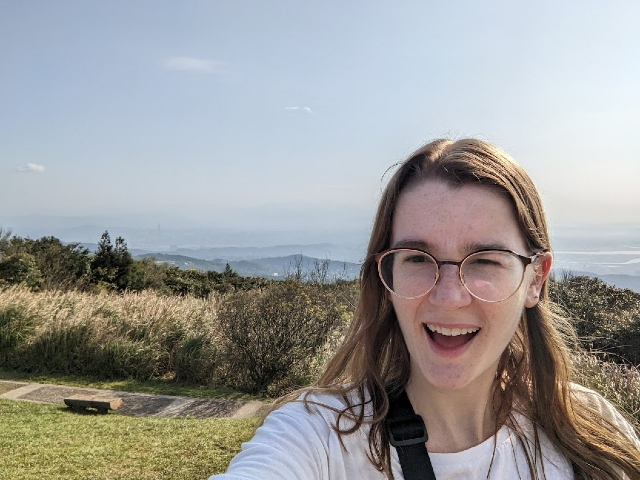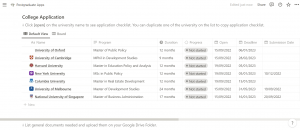
Postgraduate Applications: A Step-by-Step Guide
So, you are reaching the end of your undergraduate degree and planning to undertake postgraduate studies? Researching postgraduate courses is exciting but can also be challenging and stressful – especially if applications must be completed during the academic year. To help make your postgraduate applications are the best they can be, here are some steps to guide you along the way.
1. Research your Options
Search far and wide for postgraduate courses which best suit your interests, academic experience, and career goals. Studying abroad has reminded me that there are amazing universities across the globe, each with their own specialisms. Consider each programme’s reputation, expertise, research output, teaching style, and balance of core/optional modules. Key differences between programmes include degree length, assessment styles, fees, and contact hours. You can also check out various funding opportunities, such as bursaries or scholarships. For example, the School of Environment, Education and Development offers a £3000 reduction in Master’s tuition fees for The University of Manchester Alumni who have received a first-class undergraduate degree within three years of starting the Master’s course. Weighing up your options ensures that each application completed is worthwhile.
2. Organise your Applications
Unlike undergraduate applications, most postgraduate applications will not be submitted through a centralised system like UCAS. Instead, applications are often sent directly to each university. Application windows also vary across courses, universities, and countries. This can be confusing and overwhelming at times, but there are multiple tools which can help with organisation. Many people use Excel spreadsheets or Google Calendar to plan effectively. Another tool is Notion, a web-based note-taking app, which is filled with multiple useful ‘University Application’ templates in which you can gather your applications (see image). You can attach documents, URLs, images, and to-do lists with reminders to ensure you complete all steps in time for each application. I have found this tool invaluable when navigating the different requirements and deadlines for each postgraduate course.

College Applications
3. Craft your Personal Statement
Your personal statement demonstrates your passion for the field and your relevant experiences. Tailor your personal statement to each application by emphasising unique qualities that make you a valuable addition to the specific programme. To begin your statement, create a captivating opening sentence which draws the reader in and highlights your interest. Use short sentences throughout your statement to ensure clarity and write consistently-sized paragraphs to form a balanced structure. When describing your relevant experiences, use specific examples to demonstrate your strengths. Once your statement is completed, send it to people who will provide constructive feedback. This ensures your personal statement is convincing and makes sense to whoever reads your application!
4. Update your CV
Your CV should provide a snapshot of your academic and professional journey. Like your personal statement, this should also change for each postgraduate application to highlight your most relevant achievements and experiences. Emphasise your most suitable and impressive accomplishments, whether they were completed in academia (such as a dissertation) or in industry (such as an internship). The University of Manchester’s Careers Service provides tons of guidance on creating a stellar CV! Remember to check specific CV requirements as different universities request CVs of different lengths and formats.
5. Select Appropriate Referees
Referees offer additional perspectives on your academic abilities and character. Select referees who know you well and thus can provide the most compelling evidence to support your postgraduate application. Remember, you do not have to ask academic advisor(s) assigned to you if you found yourself engaging more with other academics throughout your degree. Provide your referees with sufficient time to write recommendation letters, considering their multiple other commitments. To assist the process you can send your referee your personal statement and CV as these will display your experience and motivations for applying to the course. This will ensure consistency across all documents read by the university you are applying to.
Finally, enjoy the process! Applying for postgraduate study is exciting, and it is rewarding to reflect on your personal experiences to see how far you have come since you were last applying for university. Best of luck!
Written by Hannah, current BSc Geography with International Placement student at The University of Manchester






0 Comments